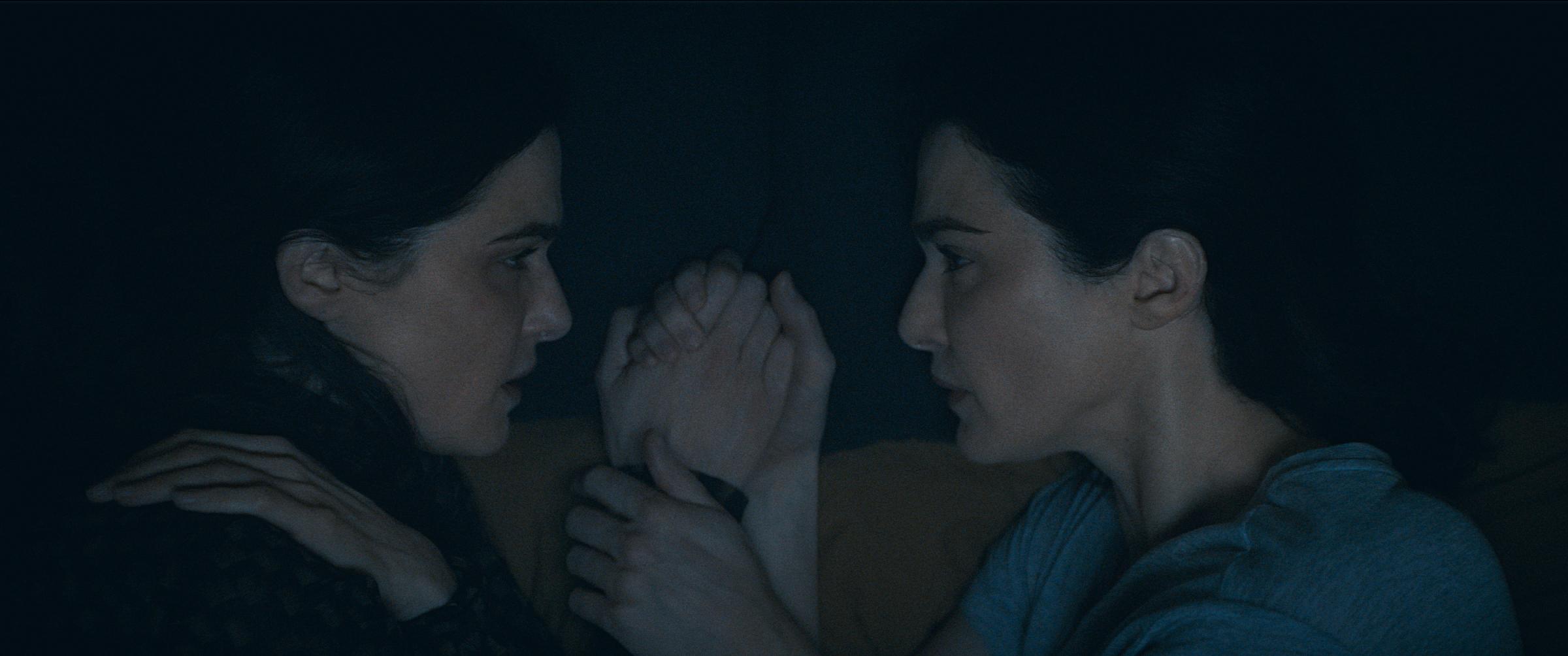Warning: This post contains spoilers for Prime Video’s Dead Ringers TV series.
Amazon’s new Dead Ringers series, now streaming, opens with a striking scene that immediately sets the tone for what’s to come: identical-twin OB-GYNs Elliot and Beverly Mantle (both played by Rachel Weisz) sit across from each other in a diner discussing their careers before a random man abruptly propositions them for a threesome.
They quickly put the stranger in his place, sarcastically denouncing his assertions that his invitation was a normal ask for a pair of twins. “I feel like I’ve just discovered a superpower,” Elliot quips as the man, who she’s derogatorily dubbed Larry, finally turns away.
Distinguishable by their hair styles—Beverly’s tied back in a low bun, Elliot’s left down—and temperaments—Beverly reserved and principled, Elliot brazen and unpredictable—the Mantle twins are on a mission to bring women’s healthcare into the modern age by opening a birthing center where each and every “guest” (as opposed to “patient”) can look forward to a personalized experience. “Pregnancy isn’t a disease,” Beverly repeatedly insists throughout the six-episode limited series.
But as their professional dreams start to fall into place, their personal lives and relationship with one another begin to swiftly unravel. “The idea of having these two women at the pinnacle of their professional lives, but their private lives are so dysfunctional, and so aberrant, and so bizarre,” Weisz told Indie Wire. “That contrast—it doesn’t get any better.”
The show is a gender-swapped remake of body-horror master David Cronenberg’s 1988 psychological thriller of the same name, which was itself loosely based on the lives and deaths of identical-twin gynecologists Stewart and Cyril Marcus, and on Bari Wood and Jack Geasland’s 1971 novel Twins, a highly fictionalized version of the Marcuses’ story.
Read More: A Subversive New Dead Ringers Reboot Makes Cronenberg’s Original Look Tame
How Dead Ringers subverts the original movie

Cronenberg’s cult classic is told from a male point of view, with Jeremy Irons starring in the dual role of Beverly and Elliott. The film chronicles the codependent brothers’ progressively toxic relationship as Beverly’s dalliance with a patient named Claire (Geneviève Bujold) and subsequent descent into drug-fueled madness threatens to ruin their medical careers.
The show, created by Alice Birch (a screenwriter for Normal People and Succession), updates the story by putting more emphasis on the realities of the Mantle twins’ profession and female medicine as a whole. When we’re introduced to Beverly and Elliot, they’re working in a Manhattan hospital as they attempt to convince uber-wealthy opioid heiress Rebecca Parker (Jennifer Ehle) to bankroll the birthing center and accompanying lab they so desperately want to turn into a reality.
“The show transforms into a stylish nightmare, grounded in the real, physical as well as subconscious, messiness at the intersection of science and motherhood and sisterhood and technology and money and morality, whenever the Mantles are alone (separately or together),” TIME TV critic Judy Berman wrote in her review.
When Beverly becomes entangled with a famous actress named Genevieve (Britne Oldford) after meeting her during an examination—a procedure that Elliot swaps places with her to perform after Beverly gets overwhelmed—things quickly start to spiral out of control. As the sisters’ ever-so-close bond begins to fracture, especially once Beverly gets pregnant without telling Elliot, Elliot goes down an increasingly destructive path.
An ending that pays homage to its predecessor
At the end of Cronenberg’s film, Beverly and Elliot die within quick succession of one another when Beverly, in a drug-induced psychosis, performs a fatal operation on Elliot to “separate” them and then cannot live with what he has done to his brother. The show, on the other hand, switches things up a bit by having Elliot, at Beverly’s request, perform a C-section on her to remove her twin children and then take her place by carrying the babies out of the room with her own stomach also opened up. With Beverly dead, Elliot goes on to live as her sister, as mother to her children and partner to Genevieve.
In an interview with Gizmodo, Birch explained that she wanted to pay homage to Cronenberg with the ending while still staying true to their updated story. “We wanted to make sure that it was inspired by the Cronenberg film, but it’s so iconic, you know, we never wanted to do a straight retelling of it,” she said. “So we wanted to find the ending that best served our twins and our story. It feels like the ultimate twin swap.”
More Must-Reads from TIME
- Cybersecurity Experts Are Sounding the Alarm on DOGE
- Meet the 2025 Women of the Year
- The Harsh Truth About Disability Inclusion
- Why Do More Young Adults Have Cancer?
- Colman Domingo Leads With Radical Love
- How to Get Better at Doing Things Alone
- Michelle Zauner Stares Down the Darkness
Write to Megan McCluskey at megan.mccluskey@time.com